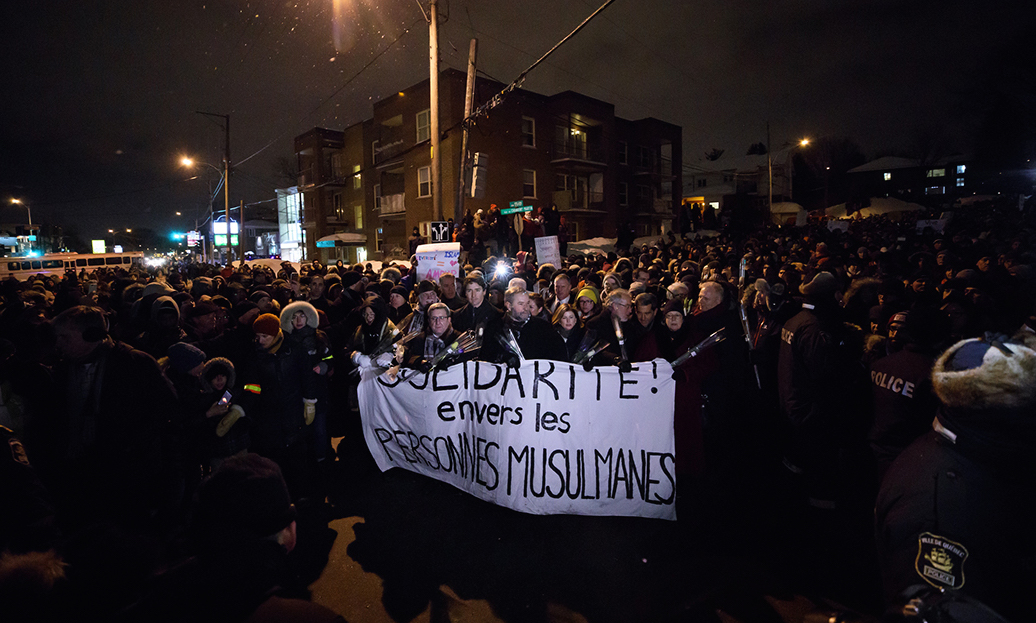It is always with a heavy heart that one approaches the anniversary of the Quebec City mosque attack on January 29. I am still in some sort of denial that such a terrorist incident could have happened so close to home. It is difficult to believe that such hate exists in the province I call home, where my children grew up, where I have made friendships, built relationships and lived for the better part of my life.
But, in the midst of these thoughts and feelings, I always remind myself that life is full of surprises: the good ones and the bad. Hate, crime, and hardships are an integral part of human history. At the end of the day, it would be best for each one of us to focus on one thing: how can I make tomorrow better than today.
At this time, when Trump recently left the White House, one cannot help but be optimistic. Yet, naive optimism can be a problem. There is a lot of work that needs to be done to make ours a better world, and only if we undertake that work will we be helping the situation.
In addition to commemorating the incident on January 29, 2017, honouring the victims’ lives and vowing that, as a society, we will not forget, we have to work to eliminate the root causes of what happened on that dark night, four years ago.
One of the ways to tackle the root causes of the hate and ignorance that led to what happened in 2017 was establishing Muslim Awareness Week (MAW). There are so many Muslims living in Quebec. They are quite diverse, they differ in many ways and disagree about many things, but in their vast majority they are decent, hard working and educated and they contribute positively to society. We need to know them; you need to know them. MAW provides such an opportunity. It is not a religious event intended to inform you about Islam the religion. It is a series of events that introduce Muslim people to you: women, men, and youth. Workers, professionals, activists, students, artists, homemakers; you name it. The goal is to tell you more about this community that lives with you, among you, serves you and is served by you; a community that needs you and is needed by you.
Yet MAW and similar strategies are not the only way to tackle the root causes of what happened on January 29, 2017. We cannot ignore the damage that politicians do to the social fabric of society, which can lead to drastic results. Trump did it in the U.S. in a way that no one can ignore. Our politicians here, in Quebec, are also setting precedents that are very dangerous and can lead to great harm in the short and the long run. If we accept discrimination against people, by law, based on what they choose to believe in or wear (not because it is indecent, offensive or hinders their ability to perform their jobs), we are creating a two-tier society in which the unimaginable can happen.
This is why another way to contribute to our society’s health is to stand up against laws like Law 21 (formerly Bill 21). We should all be against it, not because it affects you or someone you know directly, but because it creates a society you do not want to live in or pass along to your children. Because it violates charters of rights (both the Canadian and Quebec charters) which many have dedicated their lives to creating and upholding over generations. Movements like “Non a la loi 21” (NL21) are another way to eradicate the root causes of what happened in the Centre Culturel Islamique de Québec in 2017, before similar catastrophes occur.
No one can guarantee that a massacre like the ones that happened in Quebec City in 2017, in Pittsburgh in 2018 or in Christchurch in 2019 will never be repeated, but doing our part will considerably reduce the probability of something like this happening again, to any group — in Quebec, Canada, or anywhere in the world.
Ehab Lotayef is an IT manager at McGill University. He is a founder and former chairperson of “Muslim Awareness Week” and the former coordinator of “Non a la loi 21” campaign.
Image: Adam Scotti/PMO




